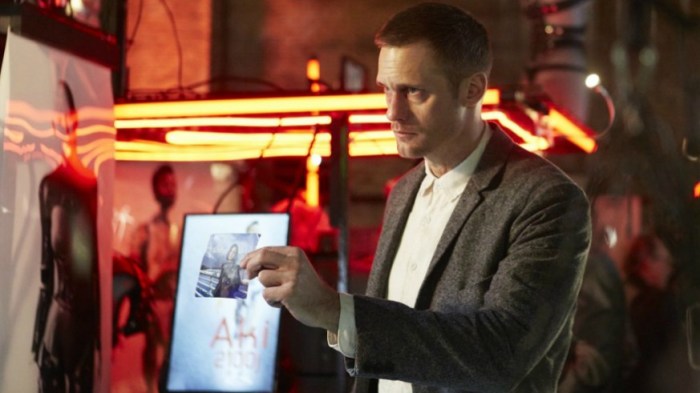When Duncan Jones was taking the first tentative steps of his directing career he envisioned Mute as his debut film.
But the movie world works in mysterious ways. If “Mute” had been made when Jones and Michael Robert Johnson had originally written it back in 2002 then it would have been a contemporary gangster film, set in London, in the mold of “Sexy Beast” and “Layer Cake.”
Jones couldn’t find funding, though. So instead he made “Moon,” which hit cinemas in 2009 and launched a career that has seen Jones write and direct the acclaimed “Source Code” and the international hit adaptation of the video game “Warcraft.” Before the release of each of these films, though, Jones has always made a valiant attempt to get “Mute” made.
Over this 16-year period “Mute” has changed drastically, though. So much so that by the time it had been bought by Netflix, “Mute” was set in Berlin, had an international cast, was heavily inspired by sci-fi films like “Blade Runner,” and set in the future.
I recently had the chance to talk to Duncan Jones about the release of “Mute,” which is now available to watch on Netflix, and the filmmaker was refreshingly honest about making a film for the streaming website instead of the big-screen, as well as the death of original Hollywood movies.
Talk about working with Netflix on “Mute.”
After 3 and a half years of “Warcraft” politicking and battling, my producer Stuart Fenegan managed to get his foot in the door and we pitched it to them, and they liked it, and told us to go for it.
Did you change your approach for Netflix?
No. It’s interesting. I’ve seen a few directors whose names I won’t mention say they shoot things one way or another, and would never shoot things meant for TV in the same way as film. I don’t get that.
If either you or your mate has a decent TV and a decent sound system you can get the theatrical experience at home. So I am not going to shoot something to make it work for TV because I think that’s daft.
I’d rather just make it look as good as it can for whatever size screen you have got. It is on you to find a decent TV to watch it on. Just don’t watch it on your iWatch or on your iPhone, if you can avoid it. But I’m not going to change it for that.
Would this version of ‘Mute’ ever have been made by a Hollywood studio?
It couldn’t get made for the studio. We tried. This is the sad truth about that. The studios have made a business decision, and they made it quite a few years ago, that the small, original independent arms that they used to have that would do films in the $20 – $40 million range they have basically folded them up.
They’ve gone, ‘It’s not worth the bother. We are just going to focus on the franchises, sequels and the pre-existing known quantities and we are going to make films for four quadrants: younger men, older men, older women, young women, all of them together. And it is all going to be dependent on us getting our money back on opening weekend.’ And that’s the business that studios are now in.
That has taken away where you used to get original movies from. Which was the independent arms of the studios. We’re fortunate that there is this new amazing avenue, whether it is Netflix, Amazon or Apple, that can afford to make films at that budget that are completely original.
They are not dependent on the same business practices that film studios are used to. And it is really great because a lot of the original and weird stuff that is now getting made just wasn’t getting made. They’re the ones being really brave and they are going to discover the next sort of exciting and ambitious films.
The studio machine now has a different agenda. I think the studio system is still trying to find its function. Obviously there is Marvel and Disney. But the more general studios are trying to work out how to stay relevant and connected to what audiences want, without giving them the same thing every year. They just want to give them a sense of something new that keeps them coming to the movies.
You can now watch “Mute” on Netflix.

















